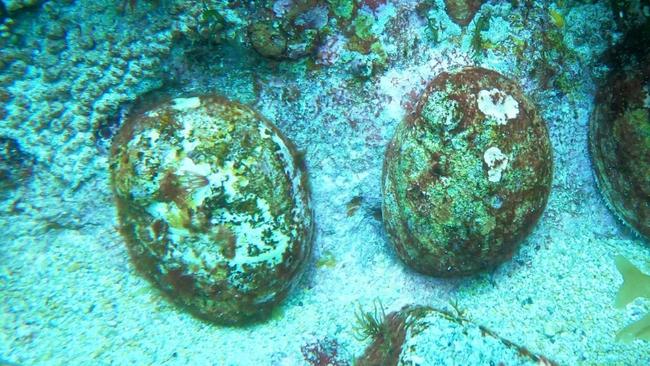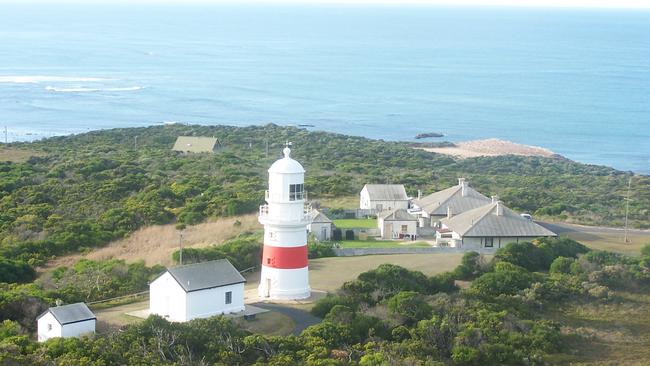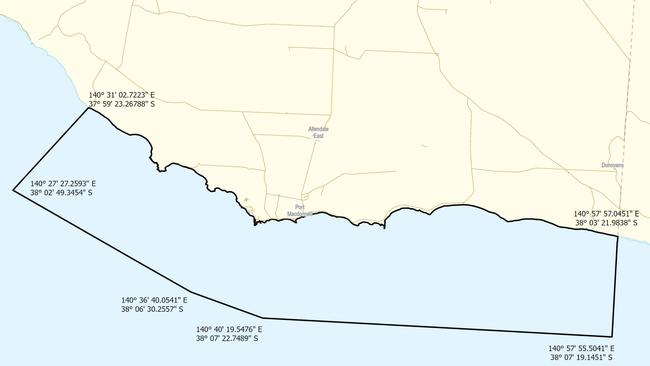Fishing ban in Port MacDonnell region after AVG abalone virus outbreak
An urgent ban on all fishing across a 55km section of coast in the state’s South-East to stop a virus spreading has one odd loophole, authorities have revealed.

Mount Gambier
Don't miss out on the headlines from Mount Gambier. Followed categories will be added to My News.
An urgent two-week fishing ban has been put in place across a large section of Port MacDonnell coastline in an attempt to protect SA’s lucrative, $35m abalone industry from being devastated by a new virus.
Abalone viral ganglioneuritis (AVG) – which attacks abalone’s nervous system, causing weakness and eventually death – was detected for the first time in SA on February 21.
It has no known effects on human health but kills about 90 per cent of infected farmed and wild abalone populations.
The ban applies to both recreational and commercial fishers and spans the coastline from Nene Valley in the west to the SA-Victorian border about 55km away, reaching about 10 km out to sea in an attempt to stop the virus spreading in SA.
It started on February 24 and continues at this stage until March 8, but that may change.
However, the Department of Primary Industries and Regions says any registered lobster fishers - both commercial and recreational - are able to retrieve pots under specific conditions.
Empty rock lobster pots can be retrived as long as any catch or other organic material such as seaweed or other marine creatures are left at sea where the pot is retrieved.
Collections are restricted to daylight hours between sunrise and sunset; the long-term window for retrieval will be decided in due course, as different factors are considered, including weather.
All commercial fishers must return to Port MacDonnell to decontaminate while recreational fishers can use the Port MacDonnell site or another one, as long as runoff doesn’t enter the sea.
Tom Ryan, manager of Five Star Seafoods in Port MacDonnell – a quality exporter of Southern Rock Lobster – said the outbreak would cause huge difficulties for coastal communities, more so for local fishers.
“It’s gonna be worse for the fishermen than us processors,” Mr Ryan said.
“While it is going to slow us down a fair bit, we’re still going to be able to buy and export lobster from places outside the control area.

“There’s a lot of fishermen who still have pots and nets and all the gear out in the control area that they set before the restrictions were announced.
“Some of them have $25-30k of gear in the water that could be lost or damaged if the weather goes bad.
“At the moment, most of them are just concerned with working with PIRSA to figure out a way to retrieve it.
“They’ll also have to figure out a way to sanitise it all to make sure it doesn’t spread the AVG. Whether that means someone from PIRSA comes and supervises that process or helps them retrieve the gear, I don’t know, but hopefully something can be done. It’s a really tough situation.”
Mr Ryan said the restrictions could also push up the price of lobsters.
A commercial abalone fisher first reported dead and dying wild abalone at Breaksea Reef off Port MacDonnell in SA’s South-East to the Department of Primary Industries and Regions on February 21.
PIRSA has declared a control zone in the areas of Port MacDonnell that are part of South Australia’s Southern Abalone Zone to try to prevent the abalone disease spreading to areas not yet affected.
PIRSA said boats were still permitted to travel through the control area to fish outside the zone.
“We acknowledge the impacts fishing restrictions have on industry and recreational activities,” a PIRSA spokesperson said.
“We are working closely with industry with our current priority focused on undertaking surveillance to understand the extent of the disease.
“The abalone industry in South Australia was worth $35 million in 2022-23 and any widespread outbreak of AVG could be devastating. PIRSA’s priority is to contain this outbreak as soon as possible to limit any impacts to this valuable industry.”
It urged fishers to follow the restrictions, check their boats and equipment and remove any debris or sand, clean boats and equipment with fresh soapy water and dry them before heading into the water again.
The virus was detected near Portland in Victoria’s southwest in recent years, including in August last year.

A local abalone diver has told the ABC the local industry is “staring down the barrel” of decimation after the viral disease was detected in SA water.
In the control area people are not permitted to:
PIRSA said it would install signs at beach and boat access points within the control area.
South Australia’s Acting Chief Veterinary Officer Dr Elise Spark said it was essential to prevent the spread of this disease, because a widespread outbreak would be devastating to the South Australian abalone industry.
“Everyone needs to understand and comply with the restrictions that have been put in place, and immediately report any dead or dying abalone in any part of the state to the Fishwatch Hotline on 1800 065 522 or via the SA Fishing app.”
The restrictions are currently in place from February 24 to March 8, but may change depending on the findings from PIRSA’s ongoing surveillance of the situation.





